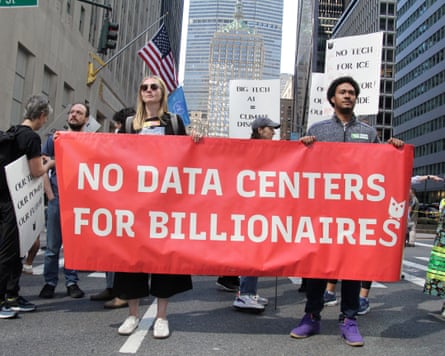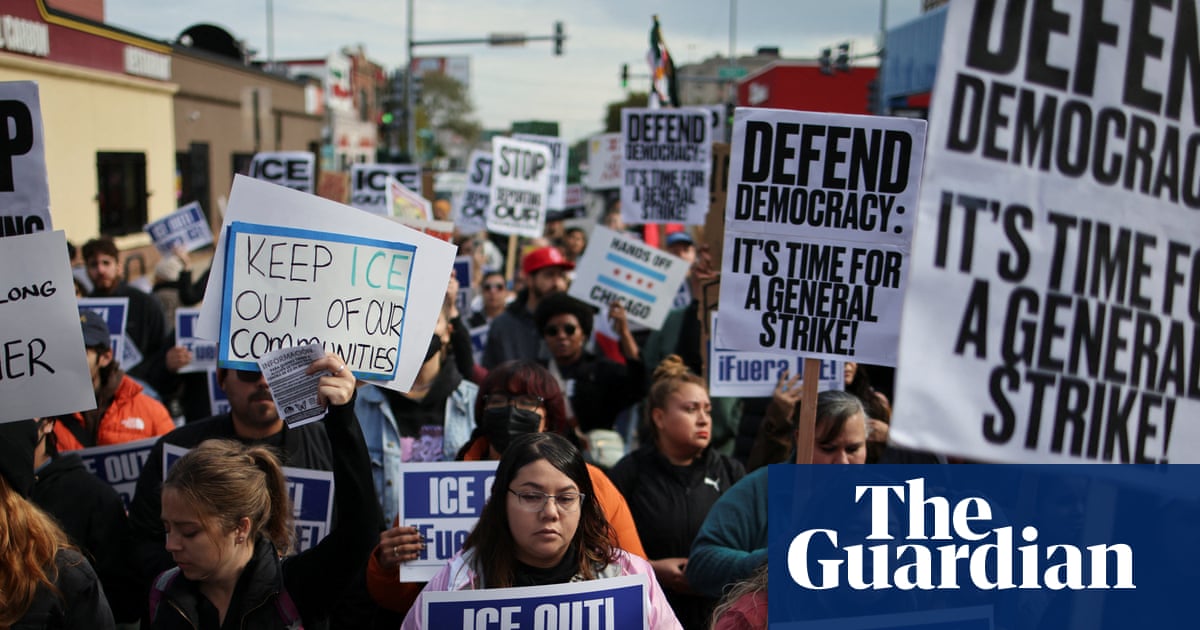At stuffy United Nations press conferences, in swanky auditoriums and at sticky socialist dance parties, one word was on everyone’s lips at this year’s Climate Week NYC: affordability.
The US energy secretary, Chris Wright, said under that under President Trump the United States is “returning to commonsense energy policies that focus on affordability”. The former energy secretary, Jennifer Granholm, said Democrats must focus on renewable power’s ability to shrink power bills to win elections. And supporters of the almost certainly soon-to-be New York City mayor, Zohran Mamdani, trumpeted their efforts to link green policies with efforts to lower city residents’ rent and make transit affordable.
The attempt to link everyday cost issues to global warming is not new. The concept was a key part of the Green New Deal, a progressive policy platform popularized by youth-led climate group the Sunrise Movement and New York representative Alexandria Ocasio-Cortez in 2018. Joe Biden picked up the framing in the White House, naming his signature green carbon-cutting policy the Inflation Reduction Act, from 2022.
Now, as utility bills soar around the country, Americans on every part of the political spectrum are framing their energy and climate proposals as ways to protect ordinary people’s pocketbooks.
More on that after the most important reads from the week.
Essential reads
-
Revealed: Europe losing 600 football pitches of nature and crop land a day
-
UK fracking ban to be brought forward as Labour counters Reform promise
In focus

Every year, Climate Week in New York City brings together government officials, corporate actors, scholars and activists for a vast array of climate-focused events, timed to coincide with the United Nations general assembly.
This year, the Trump administration’s anti-environmental blitz cast a massive shadow over the event. In appearances through the week, White House officials aimed to peg its deregulatory agenda as a win to lower Americans’ bills, with Trump calling green energy a “scam” and Wright saying: “The more people have gotten into so-called climate action, the more expensive their energy has become.”
Climate advocates attempted to expose those statements as false while getting Americans on board with green policies on the grounds that they can cut costs. For instance, two Democratic representatives, from Illinois and California, unveiled a proposal to speed new power-line construction and restore green energy incentives which Trump repealed earlier this year. Its name: the Cheap Energy Act.
It’s a framework that Jennifer Granholm, who served as US energy secretary under Biden, said she expected as climate slips down the list of political concerns for Americans, while economic worries rise. “My guess is you’re not going to see a lot of politicians using the word ‘climate’, because people see that as a nice-to-have [concern], not a must-have, and right now they’re in the must-have mode,” she told reporters over avocado toast one morning. “Affordability is key.”
Those well to Granholm’s left also called for a focus on affordability in the climate fight. But many called for more ambitious solutions that deliver more immediate benefits. Instead of merely tinkering with the tax code to incentivize green technology buildout – a hallmark of Biden’s climate efforts – politicians should prioritize less wonky, “green economic populist” campaigns such as fare-free transit and the build-out of decarbonized public housing.
“These kinds of programs do have decarbonization benefits, but they’re extremely important for starting to build up a mass base [who have] trust in public institutions and trust in the government,” Batul Hassan, labor director at the left-leaning thinktank Climate and Community Institute, said at a panel.
after newsletter promotion
Mamdani, the socialist who achieved a stunning win in the New York City mayoral primary this summer, embodies this kind of agenda, said Hassan. On Wednesday of Climate Week, progressives gathered for a dance party at the legendary Sounds of Brazil music venue to celebrate the candidate’s success.
“It has long been understood that if we’re going to build a mass movement, people need to see the connection between the transition to renewable energy and spending less money,” New York City comptroller Brad Lander said in an interview with the Guardian at the party, shouting over the thrum of Charli xcx.
Messaging is important, but merely talking about affordability is not enough, Alexa Avilés, a New York City council member and democratic socialist, told the Guardian at the Mamdani event. Trump, for instance, has failed to deliver on his promise of lowering bills while handing massive benefits to oil giants and other corporations. And many Democrats are also guilty of prioritizing their corporate donors’ interests, Avilés said.
“Some people talk about working-class folks, but then they make policies that are designed for the rich. We’ve been living with that frustration for a long time,” she said. “We need to focus on actually bringing relief to people. And we see that when we really center people over profit, people respond to that. People can tell who is for real.”
Read more:

 German (DE)
German (DE)  English (US)
English (US)  Spanish (ES)
Spanish (ES)  French (FR)
French (FR)  Hindi (IN)
Hindi (IN)  Italian (IT)
Italian (IT)  Russian (RU)
Russian (RU)  3 weeks ago
3 weeks ago
























Comments